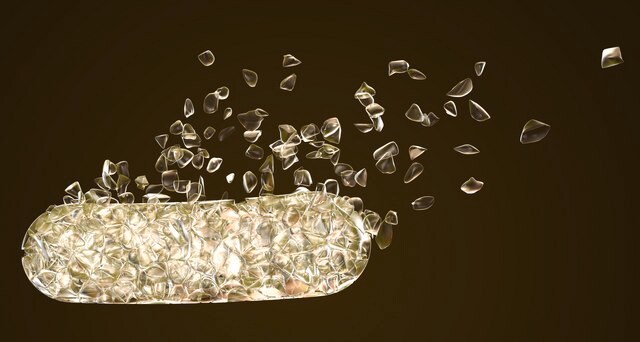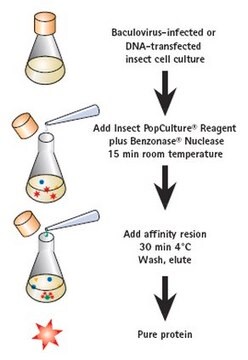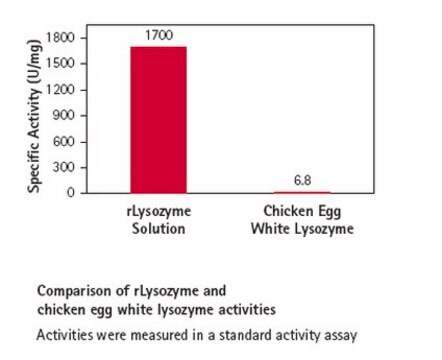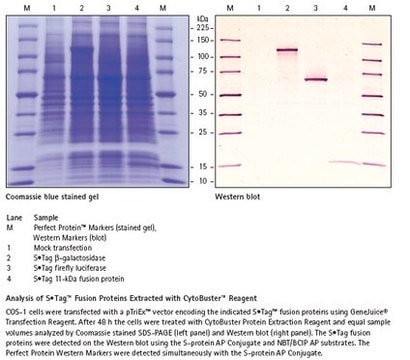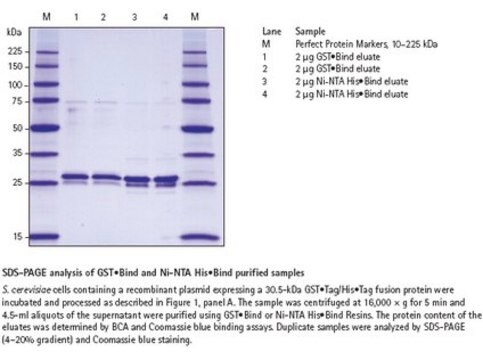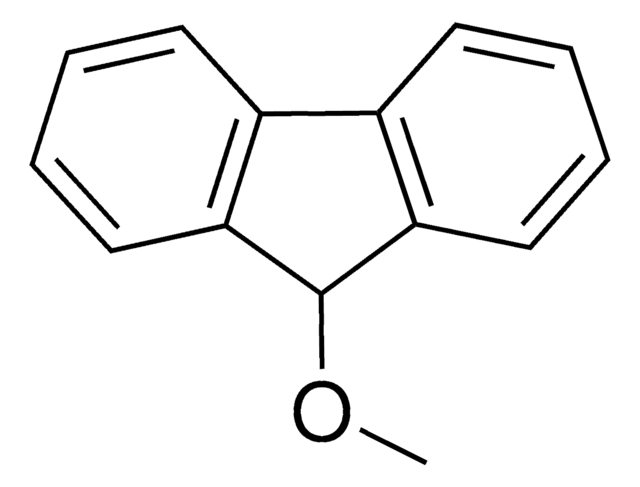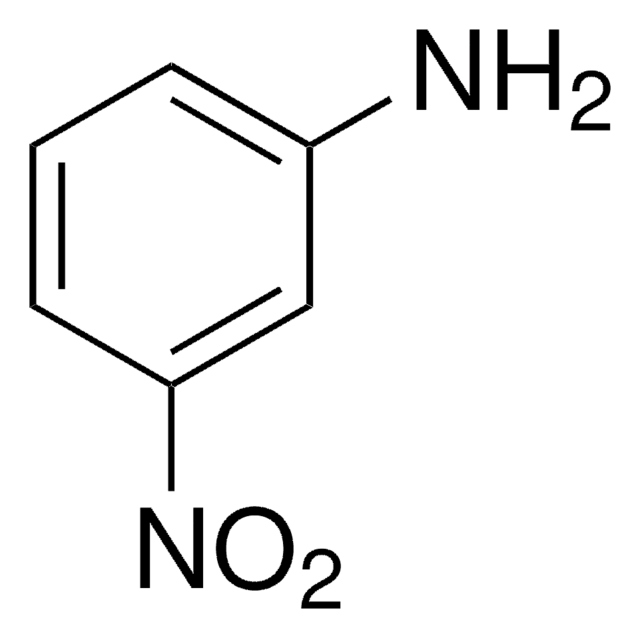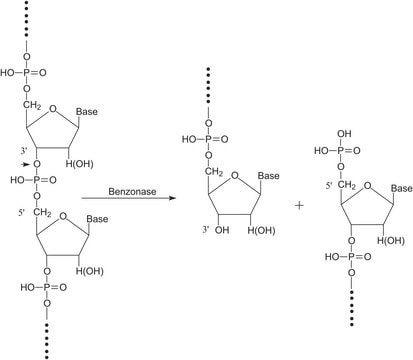71092
PopCulture® Reagent
Synonym(s):
E. coli culture medium protein extraction reagent
Sign Into View Organizational & Contract Pricing
All Photos(1)
About This Item
UNSPSC Code:
41106511
NACRES:
NA.77
Recommended Products
form
liquid
Quality Level
manufacturer/tradename
Novagen®
storage condition
OK to freeze
shipped in
ambient
storage temp.
10-30°C
Related Categories
General description
PopCulture Reagent* is a buffered mixture of concentrated detergents formulated to extract proteins from E. coli cells directly in their culture medium. Using this method, cell culture, protein extraction and purification performed in the original culture tube or multiwell plate. PopCulture perforates the E. coli cell wall without denaturing soluble protein and protects protein from the pH extremes produced in high density culture media. Recombinant proteins can be assayed directly or purified by adding an affinity matrix, washing the matrix:target protein complex to remove culture medium and cellular contaminants and eluting the purified protein from the matrix. Purification of fusion proteins from total culture extracts has been demonstrated using both IMAC and GST affinity chromatography methods (1).
To further enhance the PopCulture purification procedure, lysozyme and/or Benzonase® Nuclease may be added. Lysozyme cleaves a peptidoglycan bond in the E. coli cell wall, enhancing cell lysis and increasing the yield of protein (1, 2). Proteins may be expressed in a host encoding T7 lysozyme (pLysS host) or exogenous lysozyme may be added after the PopCulture Reagent. Benzonase Nuclease may also be added to degrade endogenous nucleic acids that may interfere with purification due to high viscosity.
The PopCulture protein purification procedure is ideally suited to high throughput (HT) robotic processing of samples for proteomics research or any application that would benefit from the increased speed and convenience. The magnetic agarose capture resins (e.g. GST•Bind<TMSYMBOL></TMSYMBOL> Magnetic Agarose Beads, His•Bind<TMSYMBOL></TMSYMBOL> Magnetic Agarose Beads) are optimal for HT applications since the entire procedure can be performed in a single tube without the need for columns or centrifugation.
*patent pending
To further enhance the PopCulture purification procedure, lysozyme and/or Benzonase® Nuclease may be added. Lysozyme cleaves a peptidoglycan bond in the E. coli cell wall, enhancing cell lysis and increasing the yield of protein (1, 2). Proteins may be expressed in a host encoding T7 lysozyme (pLysS host) or exogenous lysozyme may be added after the PopCulture Reagent. Benzonase Nuclease may also be added to degrade endogenous nucleic acids that may interfere with purification due to high viscosity.
The PopCulture protein purification procedure is ideally suited to high throughput (HT) robotic processing of samples for proteomics research or any application that would benefit from the increased speed and convenience. The magnetic agarose capture resins (e.g. GST•Bind<TMSYMBOL></TMSYMBOL> Magnetic Agarose Beads, His•Bind<TMSYMBOL></TMSYMBOL> Magnetic Agarose Beads) are optimal for HT applications since the entire procedure can be performed in a single tube without the need for columns or centrifugation.
*patent pending
Warning
Toxicity: Irritant (B)
Other Notes
1. Grabski, A., Drott, D., Handley, M., Mehler, M. and Novy, R. (2001). inNovations13, 1–4.
2. Inouye, M., Arnheim, N. and Sternglanz, T. (1973). J. Biol. Chem.248, 7247.
2. Inouye, M., Arnheim, N. and Sternglanz, T. (1973). J. Biol. Chem.248, 7247.
Legal Information
This product is covered by EP Patent 1,432,822 owned by EMD Chemicals Inc. or its Affiliates.
Benzonase is a registered trademark of Merck KGaA, Darmstadt, Germany
NOVAGEN is a registered trademark of Merck KGaA, Darmstadt, Germany
POPCULTURE is a registered trademark of Merck KGaA, Darmstadt, Germany
Storage Class
10 - Combustible liquids
wgk_germany
WGK 3
flash_point_f
Not applicable
flash_point_c
Not applicable
Certificates of Analysis (COA)
Search for Certificates of Analysis (COA) by entering the products Lot/Batch Number. Lot and Batch Numbers can be found on a product’s label following the words ‘Lot’ or ‘Batch’.
Already Own This Product?
Find documentation for the products that you have recently purchased in the Document Library.
Customers Also Viewed
Our team of scientists has experience in all areas of research including Life Science, Material Science, Chemical Synthesis, Chromatography, Analytical and many others.
Contact Technical Service